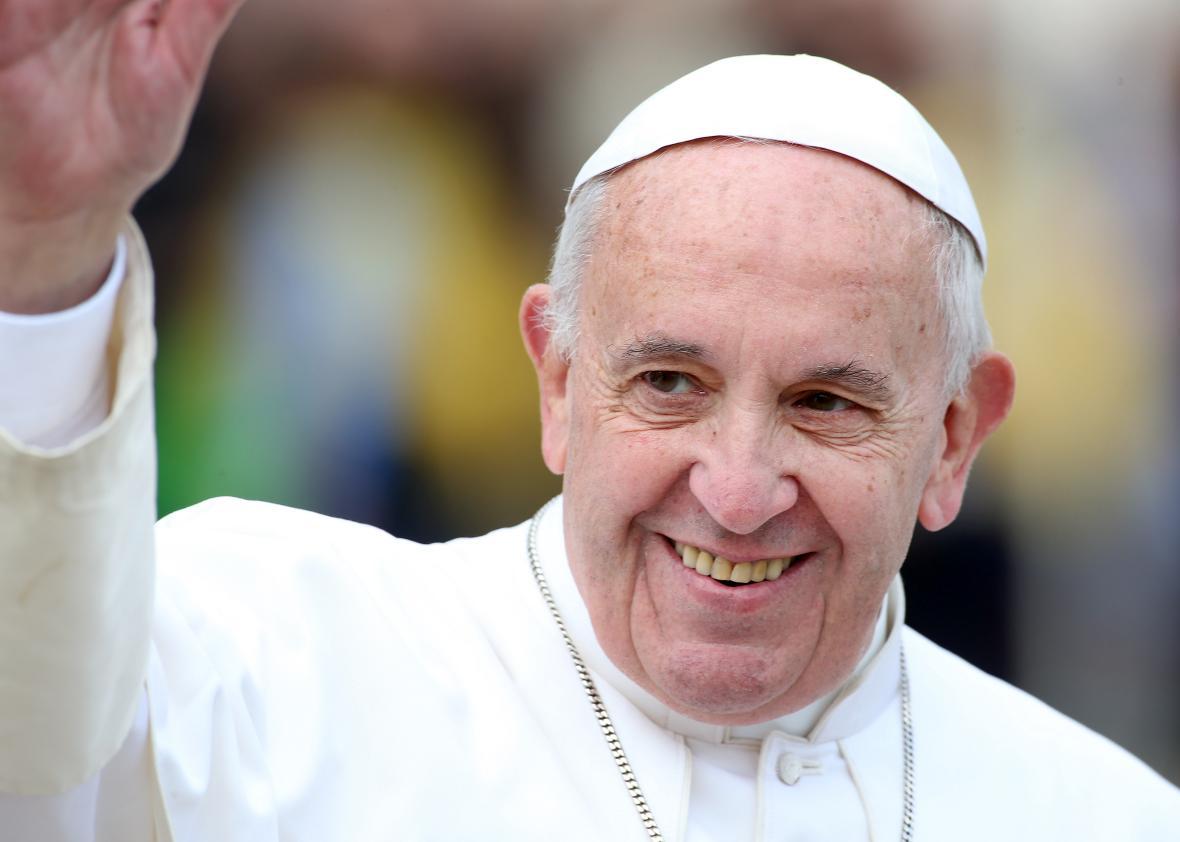Pope Francis unveiled his long-awaited treatise on family life on Friday, a 256-page document that made no formal changes to Roman Catholic doctrine but—in typical Francis fashion—called for the church to change its tone to be less judgmental and more welcoming.
The document, titled “Amoris Laetitia” (Latin for “The Joy of Love”), is known formally as an apostolic exhortation and was roughly two years in the making. And while it doesn’t pack the same papal punch as last year’s environmental encyclical, it still carries the weight of his office and will shape future church teachings. In that regard, the papal work is particularly noteworthy for one thing it appears to advocate for and one thing it rather clearly advocates against. The first: The exhortation opened the door for some divorced and remarried Catholics to take Holy Communion. The second: It kept the church door firmly closed on same-sex marriage.
Here’s the New York Times early review:
The scope of “Amoris Laetitia” is typical Francis: a broad-ranging blend of biblical passages, meditations on marital love, homespun advice on familial manners, passages bemoaning the frenetic loneliness of modern life and a call for families to come closer to the church, and vice versa. He admits that the church has made mistakes in alienating families and dedicates many passages to describing the pressures brought on families by poverty, migration, drug abuse and violence.
Just as he used his environmental encyclical, “Laudato Si’,” to call on national governments to enact legislation to fight climate change, Francis now calls for governments to provide support for families in the form of health care, education and employment. He describes families as under siege by the pressures of modern life.
The general welcoming vibe notwithstanding, though, the document doesn’t go quite as far as many liberal Catholics were probably hoping it would. Francis, widely seen as a reformer but who tends to take a slow-and-steady pragmatic approach when it comes to change, carves out no specific health exceptions to the church’s ban on contraception, for instance, nor did he make an explicit call for an expansion of the role of women within the church.
Even on the issue of communion for the remarried, Francis left room for priests to interpret his words as they see fit since he wrote about it in a rather roundabout way. He suggested that priests should consider their individual relationships with parishioners when making such decisions—which would seem to suggest access to the sacrament should be made on a case-by-case basis, though conservative Catholics might not see it that way. As Boston College theology professor Thomas Groome, a former priest, put it to the Washington Post: “Liberals will see it as a green light for what many Catholics have been doing de facto, following their consciences. More conservative people will say: ‘It doesn’t say the divorced can receive the Eucharist.’ And it doesn’t. But if you use your intelligence at all, it clearly says: ‘Hey, it depends on circumstances.’ ”
On the issue of same-sex marriage, meanwhile, Francis was much clearer on his view, even while acknowledging the “constructive elements” of such unions: “We need to acknowledge the great variety of family situation that can offer a certain stability, but de facto or same-sex unions, for example, may not simply be equated with marriage. No union that is temporary or closed to the transmission of life can ensure the future of society.” And later: “there are absolutely no grounds for considering homosexual unions to be in any way similar or even remotely analogous to God’s plan for marriage and family.”
Still, Francis—who shocked many two years ago when he quipped, “who am I to judge,” when it comes to gay priests—took a somewhat larger view when it came to nonmarriage LGBTQ issues, urging the church to be more accepting of “every person regardless of sexual orientation,” and writing that “every sign of unjust discrimination is to be carefully avoided, particularly any form of aggression and violence.”
